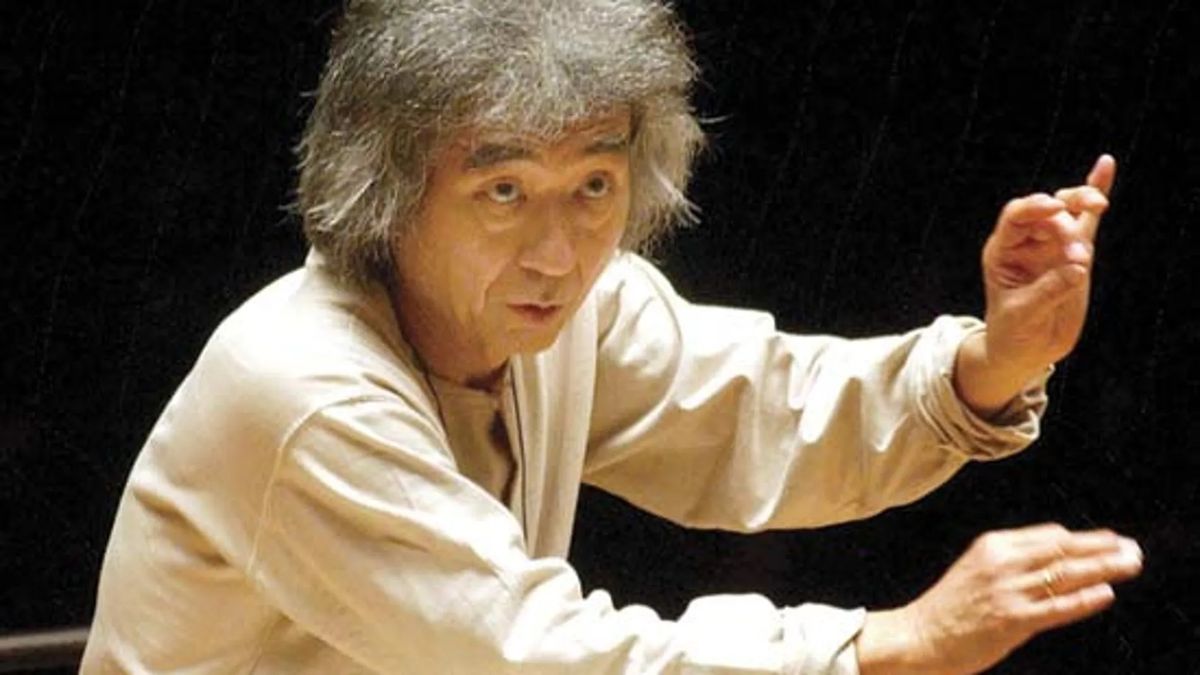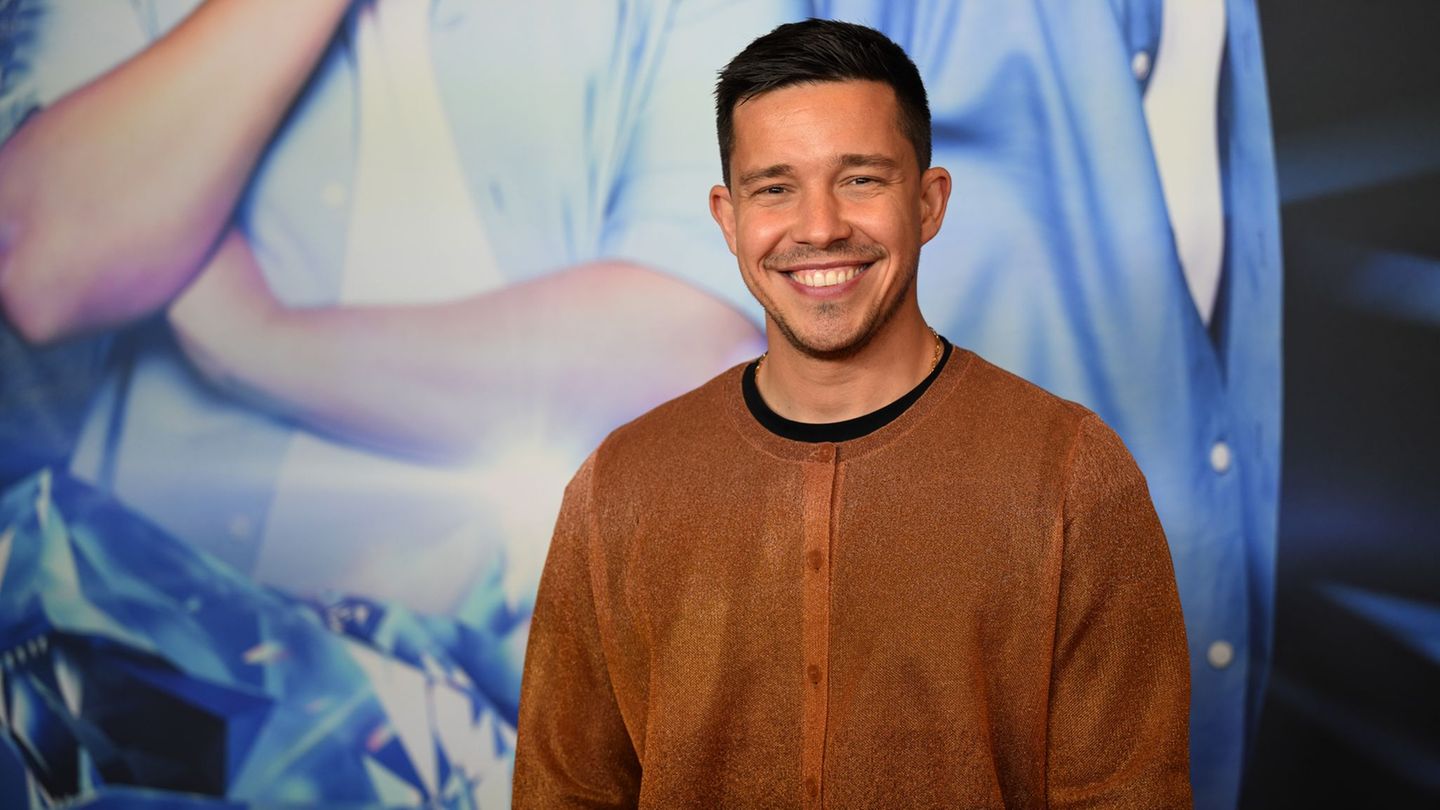At the age of 88, the world-famous Japanese conductor Seiji Ozawa died last Tuesday (although his family reported it this Friday), a member of that unrepeatable generation of musicians who, between the 1960s and the beginning of this century, They fundamentally changed not only the old conception of “classical” music but also the relationship of the public with concert halls..
Rather than proclaiming it, as so many others do, including cultural officials, they put it into practice: they took classical music from their usual temples to the streets; They made it, in the best sense of this abused word, “popular.” In addition to his special, very personal style, to give the sound, the timing and the color that he had in his head to an orchestra, Ozawa also incorporated the mass media, especially television, so that his music broke the social and restricted molds of the concert audience and reached any corner of the planet.. Her small body contrasted with her dizzying movements and her mane, first dark, then silver, in permanent agitation.
His death occurred due to cardiac arrest, although he had been suffering from esophageal cancer for years, which kept him away (although only half-way) from activity.
Embed – Ludwig van Beethoven: “Choral Fantasy” op. 80 – Seiji Ozawa, Martha Argerich
Ozawa He led the Boston Symphony Orchestra (BSO) from 1973 to 2002, longer than any other conductor in the organization’s 128 years.. Fairly, Towards the end of 1992, he visited us at the Teatro Colón during the BSO’s first South American tour of Latin America.. For her television broadcasts with her, she won two Emmy Awards. She helped the BSO become the largest-budget orchestra in the world, with an endowment that rose from less than $10 million in the early 1970s to more than $200 million in 2002.
His training, after leaving his native country at the end of the 1950s, occurred, as a first disciple and assistant almost immediately, of two teachers: none other than Leonard Bernstein, whom he met in 1961 upon arriving in New York through another great director, Charles Munch, and then in Vienna with Herbert von Karajan. In the capital of Austria, Ozawa became musical director of the State Opera.
The reader interested in the topic can consult (it is a true delight to read) the book of conversations between Ozawa and his compatriot, the writer (and eternal Nobel candidate) Haruki Murakami, published in Spanish (Tusquets) with the title of “Music, just music”. There Murakami highlights the direct relationship between a novelist and an orchestra conductor. The importance of the whole, the part, the look.
Ozawa says that Bernstein was the quintessential embodiment of the American, who everyone in the orchestra called him “Lenny” even though he was playing with him for the first time, and he carried the idea of what he wanted from an orchestra so deeply inside him, in each piece, that he hardly needed to rehearse.: What’s more, he hated rehearsals. That she got angry when he, Ozawa, since he began to be his assistant, gave instructions to a particular musician on how he should play a part. “Leave them alone, Seiji, they’ll figure it out on their own.” And, miraculously, that was the case.
Embed – Seiji Ozawa conducts Berlioz’s “The Damnation of Faust” in 1973
Von Karajan was the complete opposite. No one would have thought of calling him “Herbie,” not even his wife. He was always the “Master”, except in his last years of life, in which it began to soften a little. And, unlike Bernstein, he marked each musician in the orchestra in a Prussian way in rehearsals until he achieved what he wanted. Ozawa adds that sometimes, as he came with the “Lenny method” incorporated, he trembled when he had to conduct the Vienna orchestra and Von Karajan watched him.
Ozawa was also artistic director and founder of Saito Kinen, Japan’s Japanese music and opera festival., and in his last years of the Seiji Ozawa Matsumoto Festival. With the Saito Kinen Orchestra he won the Grammy for best opera recording in 2016 for Ravel’s L’enfant et les sortileges (“The Child and the Spells”).
Here we transcribe some brief, wonderful passages from the aforementioned book:
“I don’t mean to offend anyone,” says Ozawa, “but the truth is that I have never liked those maniac record collectors, people with a lot of money, with very expensive sound equipment, who keep adding records and more records to their collections.. Years ago I didn’t have money, but I did have the opportunity to visit some of those houses with magnificent collections. In one, for example, they had all the recordings of Furtwängler or I don’t know who. However, most of The people who own those collections are usually very busy and barely have time to listen to all that music. I recently experienced that same unpleasant feeling again while I was in a CD house and looking around. You are not a musician and perhaps you better understand the position of those collectors.”
Murakami retorts: “I’m not a musician, but If one does not develop a certain musical ear, one will not be able to construct phrases well. In my opinion, music improves writing and writing improves hearing.. It is a double effect, it happens simultaneously in both directions. Nobody has taught me how to write and I haven’t studied anything concrete about it either. I have learned to do it thanks to music, and that is why the most important thing for me is rhythm, like in music, don’t you think? No one will read sentences without rhythm. A kind of rhythm is needed that pushes the reader to move forward. Reading an instruction manual, for example, is an ordeal for anyone, don’t you think? It is a paradigmatic case of writing without rhythm.
Source: Ambito
I am an author and journalist who has worked in the entertainment industry for over a decade. I currently work as a news editor at a major news website, and my focus is on covering the latest trends in entertainment. I also write occasional pieces for other outlets, and have authored two books about the entertainment industry.




